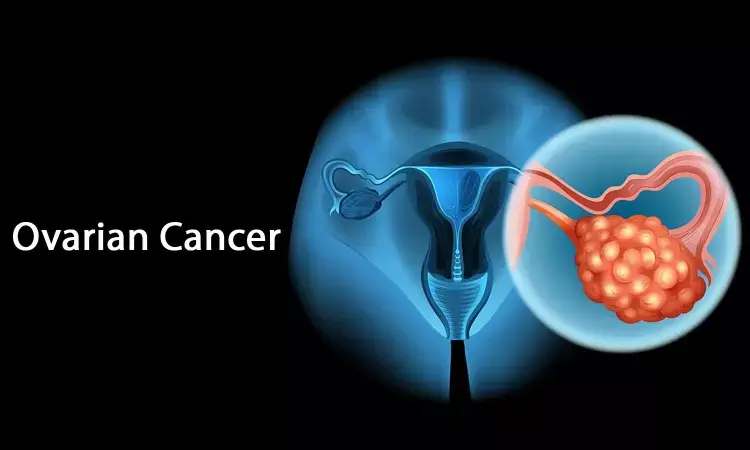- Home
- Medical news & Guidelines
- Anesthesiology
- Cardiology and CTVS
- Critical Care
- Dentistry
- Dermatology
- Diabetes and Endocrinology
- ENT
- Gastroenterology
- Medicine
- Nephrology
- Neurology
- Obstretics-Gynaecology
- Oncology
- Ophthalmology
- Orthopaedics
- Pediatrics-Neonatology
- Psychiatry
- Pulmonology
- Radiology
- Surgery
- Urology
- Laboratory Medicine
- Diet
- Nursing
- Paramedical
- Physiotherapy
- Health news
- Fact Check
- Bone Health Fact Check
- Brain Health Fact Check
- Cancer Related Fact Check
- Child Care Fact Check
- Dental and oral health fact check
- Diabetes and metabolic health fact check
- Diet and Nutrition Fact Check
- Eye and ENT Care Fact Check
- Fitness fact check
- Gut health fact check
- Heart health fact check
- Kidney health fact check
- Medical education fact check
- Men's health fact check
- Respiratory fact check
- Skin and hair care fact check
- Vaccine and Immunization fact check
- Women's health fact check
- AYUSH
- State News
- Andaman and Nicobar Islands
- Andhra Pradesh
- Arunachal Pradesh
- Assam
- Bihar
- Chandigarh
- Chattisgarh
- Dadra and Nagar Haveli
- Daman and Diu
- Delhi
- Goa
- Gujarat
- Haryana
- Himachal Pradesh
- Jammu & Kashmir
- Jharkhand
- Karnataka
- Kerala
- Ladakh
- Lakshadweep
- Madhya Pradesh
- Maharashtra
- Manipur
- Meghalaya
- Mizoram
- Nagaland
- Odisha
- Puducherry
- Punjab
- Rajasthan
- Sikkim
- Tamil Nadu
- Telangana
- Tripura
- Uttar Pradesh
- Uttrakhand
- West Bengal
- Medical Education
- Industry
New class of drug gives hope to some ovarian cancer patients

A study published today in Nature Communications shows that the drug rucaparib has been effective in treating certain types of ovarian cancers if used early in treatment, after a diagnosis, and before the cancer cells build up a resistance to chemotherapy.
Rucaparib is in a relatively new class of drugs - Poly(ADP-ribose) polymerase or PARP inhibitors - which have been approved for therapy in ovarian cancers. This study provides insights into both how the cancers resist treatments, and which patients may respond favorably to the drug, said lead author Dr. Elizabeth Swisher, a UW Medicine gynecologic oncologist and a professor of obstetrics and gynecology at the University of Washington School of Medicine. She also co-directs the Breast and Ovarian Cancer Research Program at the Seattle Cancer Care Alliance.
The paper represents collaborative work of researchers in 75 universities and focuses on treatments of 493 patients between April 2013 and October 2016.
"PARP inhibitors are a drug class that has become an important therapeutic for ovarian and some other cancers. This study looked at pretreatment biopsies to define predictors of response to treatment and mechanisms of resistance (within the cancer cells), which is critical to understanding best use of these therapies," Swisher said.
The best responders included those patients with ovarian cancer associated with inherited or somatic (not inherited) mutations in the ovarian cancer susceptibility genes BRCA1, BRCA2, RAD51C and RAD51D, all genes involved in DNA repair, Swisher noted.
"PARP inhibitors target the Achilles heel of cancers which have certain types of defects in DNA repair," she said.
The study found that cancers exposed to previous platinum chemotherapy have built up resistance by improving their DNA repair capabilities, which then creates cross-resistance to rucaparib. This explains why PARP inhibitors work better earlier in the course of treatment, Swisher said.
The researchers correlated many molecular alterations to response to treatment including inherited and somatic mutations, methylation alterations (epigenetic changes) and genomic scars (mutational patterns created by defective DNA repair).
The authors defined which mutation and methylation events correlated with response to rucaparib.
But in patients who had received previous chemotherapy, cancers had developed a resistance to rucaparib.
https://www.nature.com/articles/s41467-021-22582-6
Hina Zahid Joined Medical Dialogue in 2017 with a passion to work as a Reporter. She coordinates with various national and international journals and association and covers all the stories related to Medical guidelines, Medical Journals, rare medical surgeries as well as all the updates in the medical field. Email: editorial@medicaldialogues.in. Contact no. 011-43720751
Dr Kamal Kant Kohli-MBBS, DTCD- a chest specialist with more than 30 years of practice and a flair for writing clinical articles, Dr Kamal Kant Kohli joined Medical Dialogues as a Chief Editor of Medical News. Besides writing articles, as an editor, he proofreads and verifies all the medical content published on Medical Dialogues including those coming from journals, studies,medical conferences,guidelines etc. Email: drkohli@medicaldialogues.in. Contact no. 011-43720751


